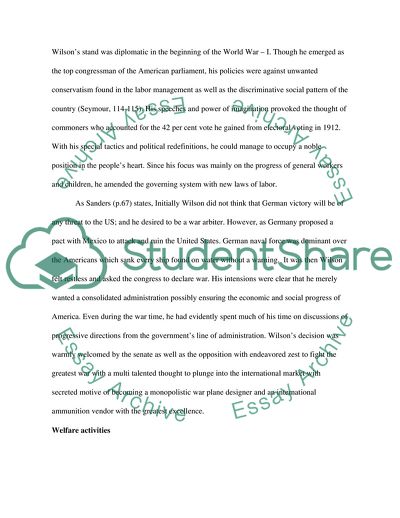Cite this document
(Woodrow Wilson and World War I Report Example | Topics and Well Written Essays - 1750 words, n.d.)
Woodrow Wilson and World War I Report Example | Topics and Well Written Essays - 1750 words. https://studentshare.org/history/1739293-woodrow-wilson-leadership-with-the-us-in-world-war-one
Woodrow Wilson and World War I Report Example | Topics and Well Written Essays - 1750 words. https://studentshare.org/history/1739293-woodrow-wilson-leadership-with-the-us-in-world-war-one
(Woodrow Wilson and World War I Report Example | Topics and Well Written Essays - 1750 Words)
Woodrow Wilson and World War I Report Example | Topics and Well Written Essays - 1750 Words. https://studentshare.org/history/1739293-woodrow-wilson-leadership-with-the-us-in-world-war-one.
Woodrow Wilson and World War I Report Example | Topics and Well Written Essays - 1750 Words. https://studentshare.org/history/1739293-woodrow-wilson-leadership-with-the-us-in-world-war-one.
“Woodrow Wilson and World War I Report Example | Topics and Well Written Essays - 1750 Words”. https://studentshare.org/history/1739293-woodrow-wilson-leadership-with-the-us-in-world-war-one.


